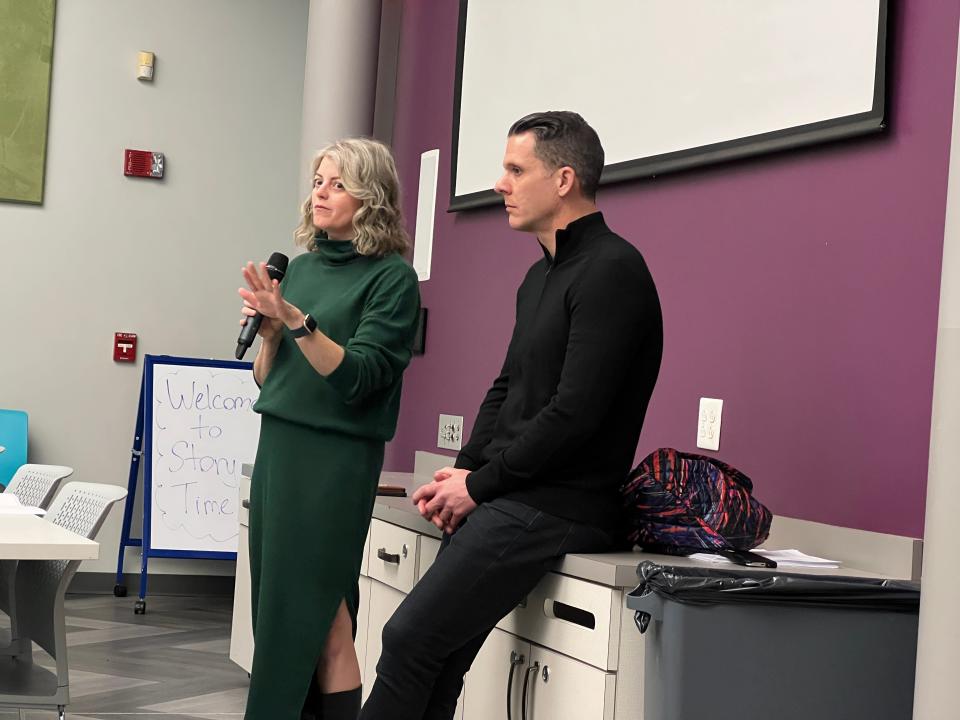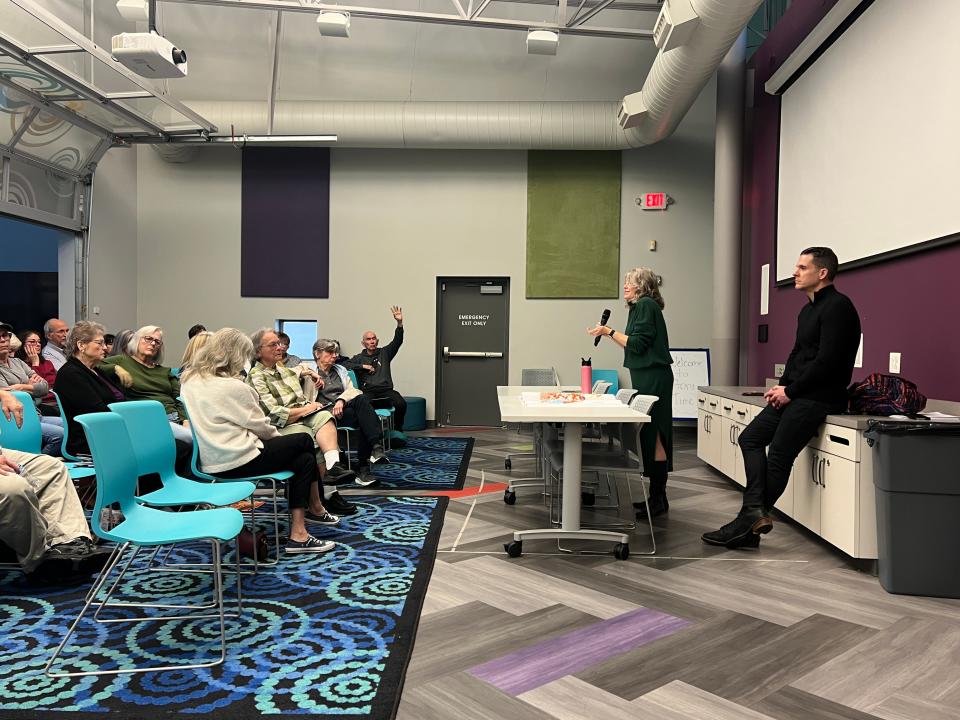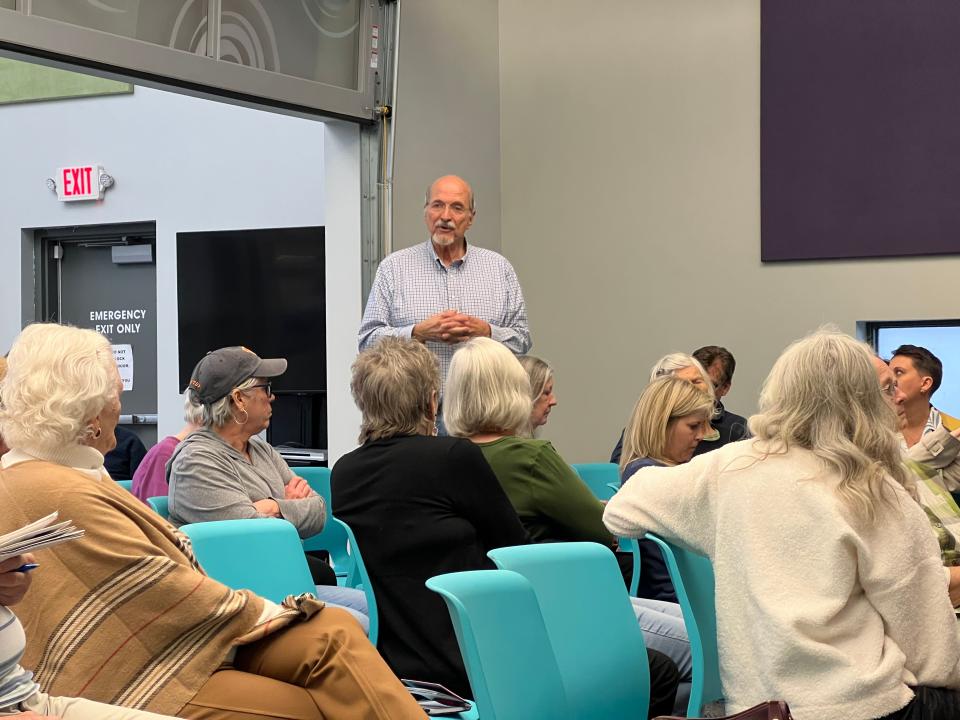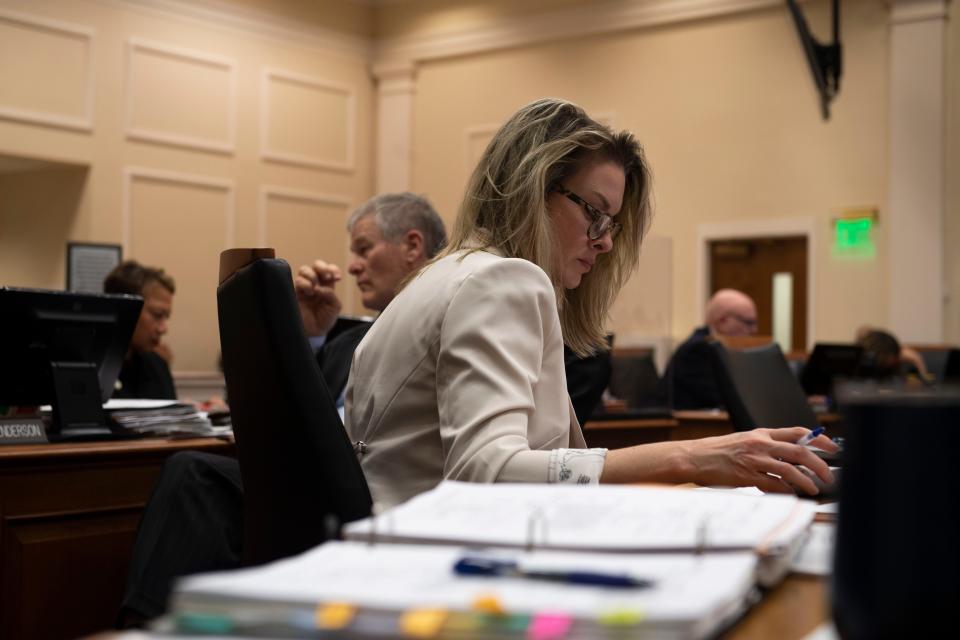Nashville neighbors fear zoning reform will spur 'voodoo housing' and 'woohoo tourism'
One community meeting alone is not a barometer for overall public opinion, but hearing people out can help local elected officials discover what citizens' worries, fears and concerns are.
This is especially important as the Metro Council will again consider several bills that would reform the building and zoning codes with the sponsors' intent of spurring the construction of badly needed housing that is affordable to more than just the most affluent residents.
U.S. Census figures released on Thursday showed that Nashville-Davidson County's population grew from 707,351 residents in 2022 to 712,334 in 2023. Continuous growth, insufficient housing supply, and rising homes and rent prices have further exacerbated the housing crisis in Music City.
The nine proposals in the Nashville's Essential Structures for Togetherness (NEST), led by At-Large Council Member Quin Evans Segall and District 20 Councilman Rollin Horton, were introduced to the 40-member Metro Council on Feb. 2.
Nashville needs affordable housing. But changing zoning law starts with listening to NIMBYs.
This is the status of the NEST proposals
A resolution (RS2024-234) requesting Metro Planning and Codes and Building Safety departments to create a "pattern book for medium-density housing" passed 37-1
A bill (BL2024-188) to eliminate minimum lot requirements for multifamily units, mobile homes and non-residential uses was indefinitely deferred
The other seven bills were deferred until the council's meetings either on April 2 or April 16 in the case of one bill (BL2024-181) allowing a single staircase in certain residential buildings
On March 6, Evans Segall announced she was withdrawing the two most controversial bills (BL2024-185 and BL2024-186) that would allow duplexes, triplexes and quadruplexes where only single-family homes are allowed in Nashville's Urban Services District, the area in and around the core of the city.
As I wrote in a column the day after Evan Segall's announcement, a community meeting held the previous weekend at Belmont University went off the rails with audience members booing and jeering Evans Segall and other council members. Angry residents complained on social media sites such as the NextDoor app, saying they felt deceived.

I missed that event, which is why I decided to attend the March 8 community meeting at the Edmondson Pike Branch of the Nashville Public Library.
'It felt like it came out of nowhere'
Although Evans Segall, an attorney with experience in real estate and public finance, had already announced she was withdrawing the two controversial bills, she came to explain the NEST legislation. She was joined by District 4 Council Member Mike Cortese, a tech sales manager and adjunct professor, who wanted to hear the public feedback. He was not present for the NEST bill votes on Feb. 2.

"Change is happening constantly," Evans Segall said. "We feel like it's all around us without control."
I was sitting on the side of the room. There was just one disruptive audience member who came in with a "No NEST" campaign sign.
Nashville zoning bill led to chaos. Can we fix this? 'People came angry and left angrier'
The meeting started at 2:30 p.m. and lasted past the planned 90-minute time frame to almost three hours. The audience consisted primarily of people with the flexibility to do a mid-day session and they were overwhelmingly attentive and polite. Many said they had lived in the community for several decades and had seen the changes — good and bad — caused by growth, and some said they feared they could not afford to move into their neighborhoods today.
Here were the concerns I heard about NEST from the audience:
"It felt like it came out of nowhere."
"A lot has been done to us."
Will it affect our property rights?
Will it harm our property values?
Will it raise our tax bills?
We chose to rezone our neighborhood not to have duplexes; why would we change our minds now?
Will this spur "woohoo tourism" in areas of Nashville outside downtown? (This refers, of course, to the oft-maligned bachelorette parties on Broadway).
How does NEST make housing affordable?

One man said NEST felt like Ronald Reagan era trickle-down economics, which his former political rival and eventual Vice President George H.W. Bush once called "voodoo economics." "This feels like voodoo housing to me," he said.
Opposition to NEST mounts on the Council
Council opponents of NEST have criticized the legislation for a number of reasons — lack of community input, a threat to single-family home zoning, and questions about who the legislation actually benefits.

District 26 Council Member Courtney Johnston, who works as a Realtor, wrote in her Feb. 22 constituent newsletter: "This proposed legislation is not responsible, thoughtful, or departmentally collaborative and, more importantly, it won’t be effective at addressing the problem that it seeks to correct - affordability. In reality, this is nothing but a developer’s dream. In my opinion, it’s not even something that can be amended to make effective or palatable."
The Metro Council is divided on the NEST legislation and the April 2 meeting is likely to be tense and long. The intent of the sponsors and multiple co-sponsors is honorable, but there needs to be an honest debate about what the best way forward is to take action that most of the community can get behind to solve the affordable housing crisis in Nashville.
David Plazas is the director of opinion and engagement for the USA TODAY Network Tennessee. He is an editorial board member of The Tennessean. He hosts the Tennessee Voices videocast and curates the Tennessee Voices and Latino Tennessee Voices newsletters. Call him at (615) 259-8063, email him at [email protected] or tweet to him at @davidplazas.
This article originally appeared on Nashville Tennessean: Nashville affordable housing: Opponents say bill benefits developers